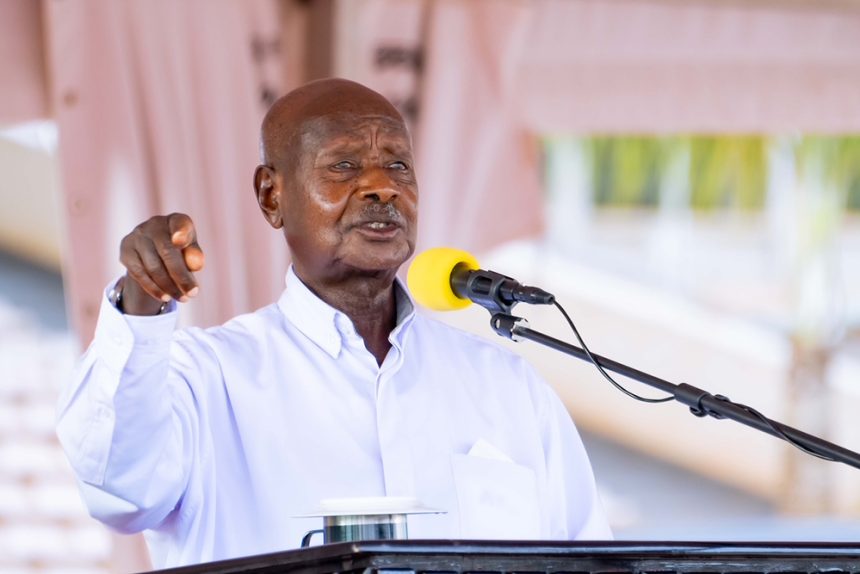President Yoweri Kaguta Museveni of Uganda and current Chairman of the Non-Aligned Movement (NAM) has, for the first time, publicly articulated Uganda’s long-held views on the unfolding tragic situation in the Middle East.
Addressing concerns raised by the Iranian Ambassador to Uganda regarding Uganda’s silence, President Museveni delivered a comprehensive statement, identifying what he termed “mistake-makers” from all sides of the conflict.
In his statement, President Museveni emphasized Uganda’s historical abhorrence of “chauvinism of identity (race, tribe, religion, etc) or gender,” stating, “We always stand for the politics of interests — legitimate interests of the stakeholders.”
He highlighted Uganda’s good relations with Israel, Iran, the United States, and other global nations as a foundation for offering his perspective.
Critique of “Mistake-Makers”:
President Museveni meticulously outlined four key areas where he believes critical errors have been made:

-
Iranian Islamists’ Stance on Israel: Museveni revealed that he has consistently told Iranian leaders, including former President Mahmoud Ahmadinejad, that their position of viewing Israel as a “transplant” lacking legitimate presence in the Middle East is fundamentally mistaken. Citing biblical history, he affirmed Israel’s historical connection to the region. He recounted the “absurdity” of the British imperialists, through Lord Balfour in 1924, offering Uganda as a homeland for Jews, an offer “wisely refused.” Museveni affirmed the United Nations’ decision to partition Palestine as “correct” and criticized “some of the Arabs and Iranian Islamists” for refusing to recognize this historical solution.
-
Israel’s Rejection of the Two-State Solution: The Ugandan President equally criticized Israel for its “refusal to implement the two States solution.” He challenged the notion that Palestinians do not belong in the area, referencing biblical “tribes of Canaan” and pointing out the continued presence of people who migrated to the area after the Roman dispersion of Jews in AD 70. He drew a parallel to Idi Amin’s expulsion of Indians from Uganda, stating, “We rejected that logic.”
-
Western Imperialists and the CIA: Museveni squarely blamed “Western imperialists, led by the Central Intelligence Agency (CIA),” for the 1953 overthrow of Iran’s democratically elected leader, Mohammad Mosaddegh, driven by a desire to “steal the oil of Iran.” He argued that this action “created that huge resentment that produced these clerics who have their own mistaken positions.” He lamented their lack of historical knowledge, even of their own country, citing his personal experience in Iran where he had to remind them about the historical “Persians and Medians.” He warned that “Fundamentalists of all types ⎯ Islamic or Christian — are a danger to humanity.”
-
The Futility of External Force: President Museveni strongly cautioned against the belief that “the use of force, especially force from outside the concerned Country, is a solution.” He cited historical examples of failed interventions, from the Papacy’s attempts to maintain Catholic hegemony in Europe to the intervention in the Soviet Union. “Force should be for legitimate defence and not for aggression,” he asserted.
A Call for Principled Diplomacy and Prayer:
In his concluding remarks, President Museveni appealed to all actors in the Middle East to “draw back from the use of force and go back to the principled diplomacy.” He directly advised: “Iran and the Islamists should listen to our advice to recognize Israel and Israel should implement the two states solution.”
He ended his powerful statement with a call for spiritual reflection: “Perhaps it’s time that we all agree to pray together and consult that Creator that cares for all of us without preference.” He urged humility and a collective prayer for “God’s wisdom, that we may do what is right in His eyes.”
As NAM Chairman until 2027, President Museveni’s intervention highlights Uganda’s commitment to seeking peaceful and just resolutions to global conflicts, emphasizing historical context and a rejection of chauvinism.
Related Article:
“President Museveni You’re Next To God” – Rt. Hon. Robinah Nabbanja




